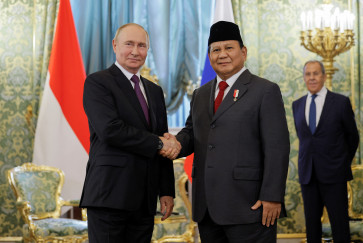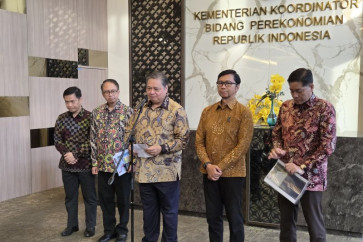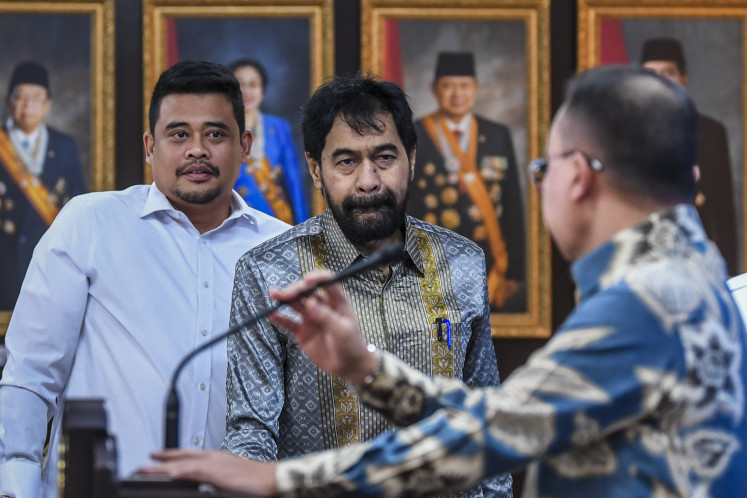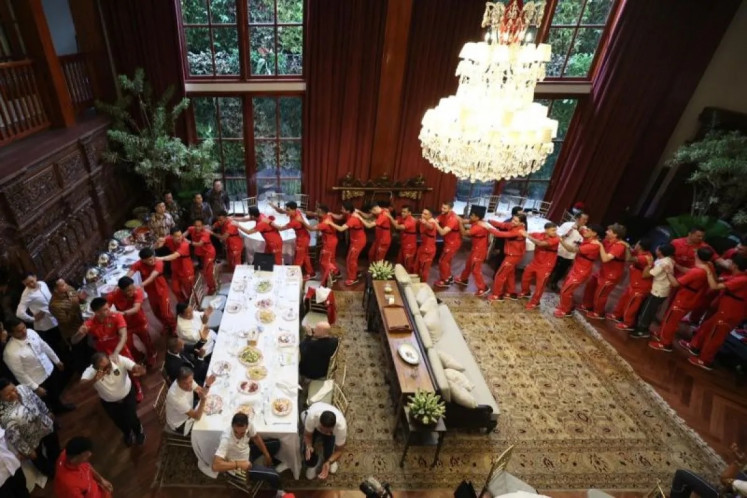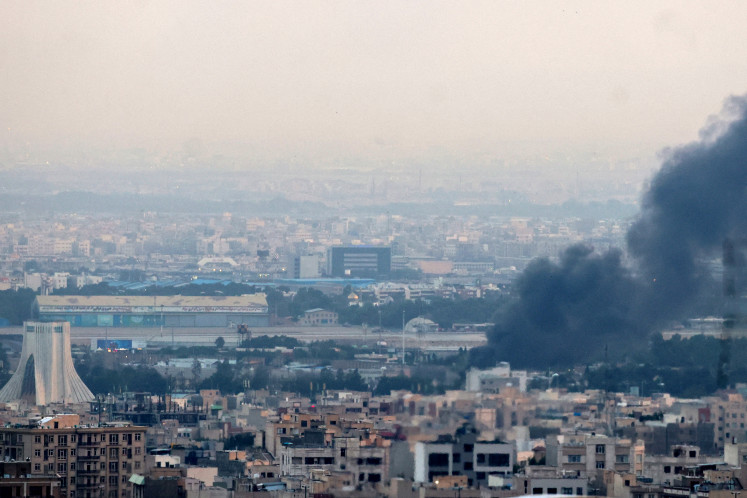Popular Reads
Top Results
Can't find what you're looking for?
View all search resultsPopular Reads
Top Results
Can't find what you're looking for?
View all search resultsSlower sales worry soft drink-makers
Domestic demand for soft drinks is forecast to remain weak as the seasonal pickup in sales for Rama-dhan and Idul Fitri festivities this year will not be enough to compensate for the generally weak consumption trend, producers say
Change text size
Gift Premium Articles
to Anyone

D
omestic demand for soft drinks is forecast to remain weak as the seasonal pickup in sales for Rama-
dhan and Idul Fitri festivities this year will not be enough to compensate for the generally weak consumption trend, producers say.
Slowing economic growth, which has seen its lowest levels since 2009 in the past few quarters, a weak rupiah and rising daily costs dragged down consumer confidence in the first six months of the year, according to Triyono Prijosoesilo, chairman of the Association of Indonesian Soft Drink Producers (Asrim).
'The consumption of goods classified as secondary needs, such as soft drinks, were decreasing and we are quite worried about Ramadhan and Idul Fitri this time, because market tendency shows a different growth trend compared to previous years,' Triyono said recently.
Soft drink companies have been benefiting from the rise of the middle-class consumer base in Southeast Asia's largest economy, which traditionally buys 30 to 40 percent more soft drinks during Ramadhan and Idul Fitri compared to regular months.
The higher demand last year helped local soft drink companies book 7 to 8 percent in overall sales growth over the year, he added.
Domestic consumption, which accounts for more than half of the economy, normally peaks between the Ramadhan and Idul Fitri period as people spend more on their families, those in need and on traveling to their hometowns.
Triyono said the business group could not forecast the exact percentage of the possible slowdown during the Islamic festivities this time as he expected the seasonal pickup to boost overall sales this year, as happened last year.
'We are still expecting the seasonal pickup, because demand triggers from other big festivities, such as Christmas and New Year, usually are not as big as at Ramadhan and Idul Fitri.'
Household consumption, which accounts for 56.1 percent of the economy, grew only 5.01 percent in the first quarter of this year, compared to 5.3 percent in the same period last year.
'It will depend on macroeconomic indicators and how consumers view the overall economy. After the seasonal festivities, sales usually drop again because the annual growth peak has been reached and people spend less after the holidays,' Triyono said.
Triyono said further that soft drink producers largely depended on the domestic market as exports remained very small, pointing out that 'there are some remote regions across the country that have yet to be reached by our sales coverage.'
Indonesians consume 600 billion to 700 billion packaged soft drinks per year, including bottled water and tea, juice, carbonated drinks, energy drinks and milk, according to Asrim data.
With the country seeing booming middle-class growth in recent years, big joint-venture and local soft drink manufacturers have been eager to increase their investments through the expansion of factories and
products.
In April this year, Coca-Cola Amatil Indonesia, part of US beverage manufacturer the Coca-Cola Company, added two new production lines at its Cikedokan plant in Bekasi, West Java, while Indonesia-Japan soft drink joint-venture Asahi Indofood Beverage Makmur opened a factory in Sukabumi, West Java.
Investment Coordinating Board (BKPM) head Franky Sibarani said the food and beverage manufacturing sector, which is one of industries that has been prioritized by the Joko 'Jokowi' Widodo administration, attracted prospective investments worth at least US$1.6 billion from Japan, South Korea and the US between November last year and March this year.


